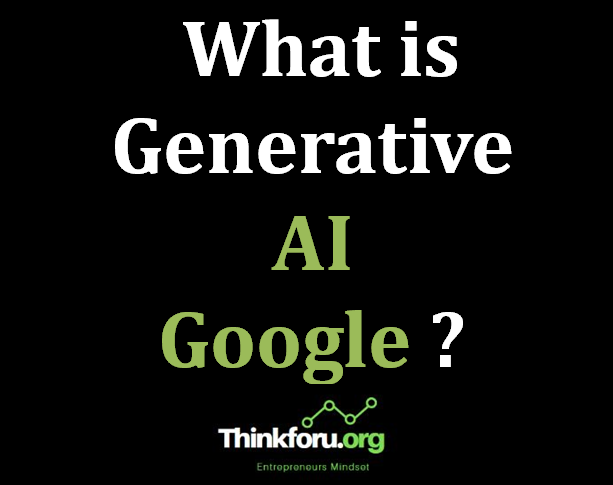Google has been actively working on various projects related to generative AI. Generative AI refers to artificial intelligence systems that can generate new content, such as images, text, or even entire pieces of music. One notable example from Google is the "DeepDream" project, which uses neural networks to generate unique and often surreal images based on patterns it has learned from existing data.
Another significant area of generative AI at Google is in the field of natural language processing, where models like BERT (Bidirectional Encoder Representations from Transformers) have been developed to understand and generate human-like text.
Google's research and development in generative AI are ongoing, and they may have introduced new projects or advancements.
Google has been actively involved in various generative AI projects, and there may have been further developments since then.
Aspects and projects related to generative AI at Google include:
1. Google Brain Team:
Google's Brain Team is a group of researchers and engineers dedicated to advancing the field of machine learning and artificial intelligence. They have been involved in developing and publishing research on generative models, such as Variational Autoencoders (VAEs) and Generative Adversarial Networks (GANs).
2. Magenta Project:
Magenta is an open-source research project exploring the role of machine learning as a tool in the creative process, particularly in the domain of music and art generation. It aims to develop models and tools that can assist artists and musicians in their creative endeavors.
3. TensorFlow:
TensorFlow is an open-source machine learning framework developed by the Google Brain Team. It provides a platform for building and deploying machine learning models, including generative models. Researchers and developers at Google use TensorFlow to implement and experiment with various generative AI techniques.
4. AutoML:
Google has been working on AutoML (Auto Machine Learning) to make it easier for developers to build machine learning models, including generative models, without requiring extensive expertise in the field. This involves the automation of certain aspects of the machine learning pipeline.
5. Google AI Research Papers:
Google regularly publishes research papers on various topics related to artificial intelligence and machine learning. These papers often cover advancements in generative models, reinforcement learning, natural language processing, and other relevant areas.
Here we can share some general areas where Google has been active in the AI and generative space:
1. BERT and Natural Language Processing (NLP):
Google has made significant contributions to natural language processing with the development of BERT (Bidirectional Encoder Representations from Transformers). BERT is a pre-trained model that understands context in language and has been influential in various NLP applications.
2. Transparency and Ethical AI:
Google, like many other AI research organizations, has been involved in research and discussions around the ethical implications of AI and machine learning. This includes considerations related to fairness, interpretability, and bias in AI systems.
3. AI for Healthcare:
Google has been exploring the application of AI in healthcare, including the use of generative models for medical image analysis, disease prediction, and drug discovery.
4. AutoML and Democratisation of AI:
Google has been working on AutoML tools to make machine learning more accessible to a broader audience. These tools aim to automate the machine learning model-building process, allowing individuals with less expertise in the field to create effective models.
5. AI in Robotics:
Google has been involved in research related to AI in robotics, including the use of reinforcement learning for training robotic systems and enhancing their capabilities.
6. Quantum Computing:
While not directly related to generative AI, Google has been investing in quantum computing research. Quantum computing has the potential to revolutionize various fields, including optimization problems that are relevant to machine learning.
To stay updated on the latest developments in generative AI at Google, I recommend checking the official Google AI blog, research publications, and announcements from Google's AI teams. Additionally, exploring conferences and workshops where Google researchers present their work, such as NeurIPS and ICML, can provide insights into recent advancements in the field.
It's important to note that the AI field evolves rapidly, and new projects and developments may have emerged since my last update. To get the most recent information, I recommend checking Google AI's official blog, research publications, and announcements from Google's AI teams. Additionally, exploring recent conferences and workshops can provide insights into the latest advancements in the field.
More Related to Generative AI
